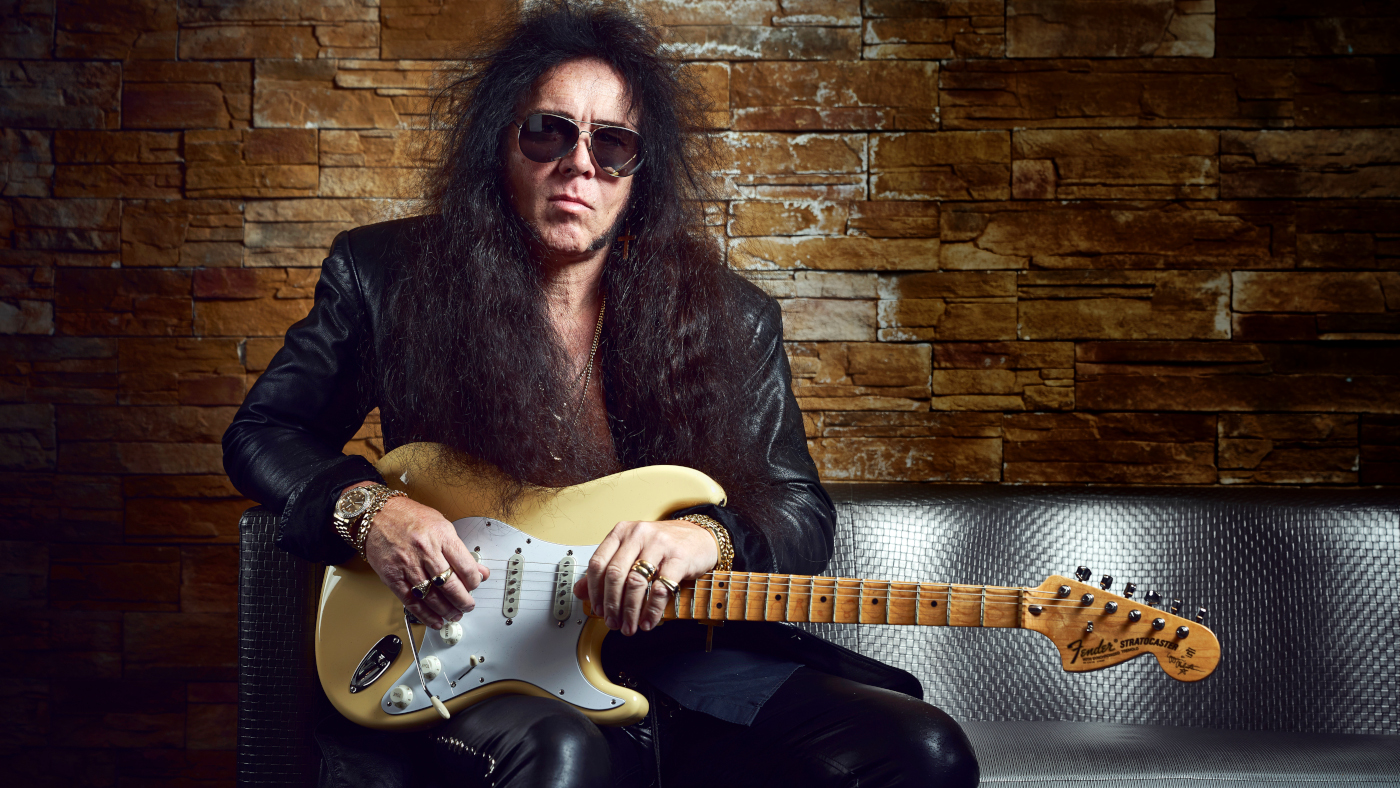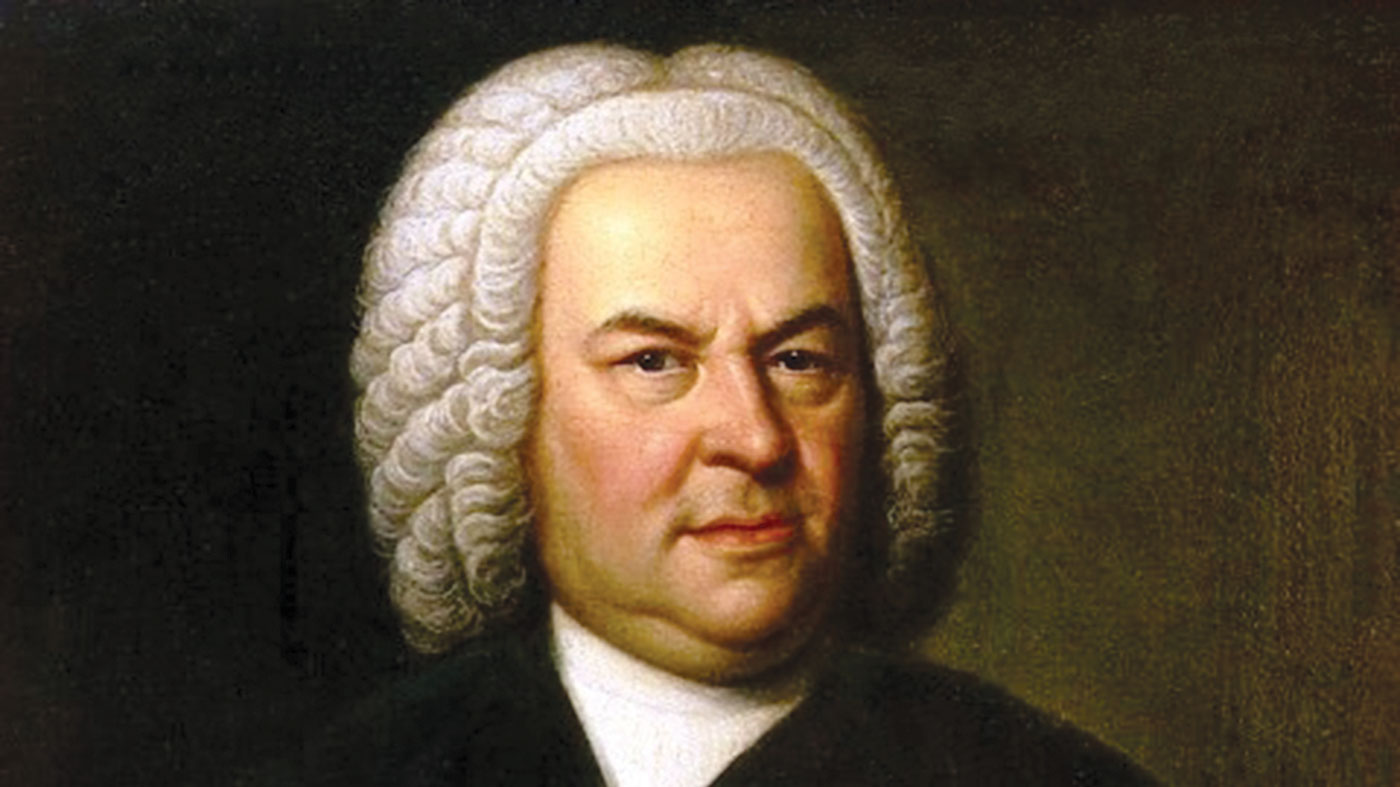Yngwie Malmsteen: "What I did was I took the entire guitar playing technique, threw it out the window and I applied violin technique"
Want all the hottest music and gear news, reviews, deals, features and more, direct to your inbox? Sign up here.
You are now subscribed
Your newsletter sign-up was successful
Last year, Japanese publication Young Guitar featured Yngwie Malmsteen as its cover star. Now the Swedish maestro has shared video of his interview with the magazine in the recording studio, and it's an insightful chat with a pioneering player who predates the term 'neo-classical' in guitar.
Though the audio of Young Guitar's questions and their possible translations are muted from the video above, it's safe to assume that Malmsteen is being asked about the influence of guitar players he's often compared to – Ritchie Blackmore being one. "What I did was I took the entire guitar playing technique, threw it out the window and I applied violin technique," said Malmsteen before a burst of sweep-filled playing to illustrate his point. "No one ever did that before, nobody."

The Swede's point here isn't mere bravado; he then makes a distinction between himself and the players before him who absorbed influence from classical composers. And the great thing about this interview is he has his electric guitar plugged in to illustrate his points. But the Strat maestro does credit a particular prog band for sending him down the classical path.
"My classical influence comes from originally hearing Genesis," Malmsteen continued, "wondering why these tonalities happen that are not standard rock n' roll. I realised it was all Bach-influenced stuff what I like."
My classical influence does not come from other guitar players; let's make that perfectly clear
After another flurry of playing to demonstrate, Malmsteen added; "My classical influence is 100 per cent from Johann Sebastian Bach, Antonio Vivaldi, Nicolai Paganini, Tchaikovsky, Mozart and so on. My classical influence does not come from other guitar players; let's make that perfectly clear.
"Having said that, I love Uli [Jon Roth], I love Ritchie Blackmore, I love Billy Gibbons, I love Angus Young, I love Brian May… I think they're all amazing guitar players. I have a lot of respect for them. I'm not knocking them one way or the other, Im'm saying my style is originating from classical violin; Vivaldi, Paganini. And the structuring of my music is very influenced by Johann Sebastian Bach. Not my somebody who is influenced by Johann Sebastian Bach, no, but Johann Sebastian Bach. And it's a very, very big difference."

The guitarist also explains that this desire to forge a new path by going back further into musical history than the blues was inspired by limitations he personally encountered with the style.
Want all the hottest music and gear news, reviews, deals, features and more, direct to your inbox? Sign up here.
"…The tonality of blues is beautiful, I love it, but it's five notes. In the chromatic octave you have 12 but you can't play that because [plays it on guitar] which is cool sometimes… maybe. But you can choose majors and minors and so on. The tonality of rock n' roll I felt was extremely limited to the five notes. Having said that I love AC/DC, I love simplistic rock n' roll bands, I think they're amazing, I'm just saying what I wanted to do. I wanted to apply, what now is known as neo classical but it wasn't at the time.
"I have a cassette [demo] tape from 1978, it's called Powerhouse. Heavy symphonic metal rock, I called it."
Malmsteen was just 15 when he recorded it, six years before his incendiary 1984 debut Rising Force, and you can hear the results below.
Yngwie Malmsteen playings UK show this July in Wolverhampton and London, following a May and June tour of the US. Ticket info here.

Rob is the Reviews Editor for GuitarWorld.com and MusicRadar guitars, so spends most of his waking hours (and beyond) thinking about and trying the latest gear while making sure our reviews team is giving you thorough and honest tests of it. He's worked for guitar mags and sites as a writer and editor for nearly 20 years but still winces at the thought of restringing anything with a Floyd Rose.